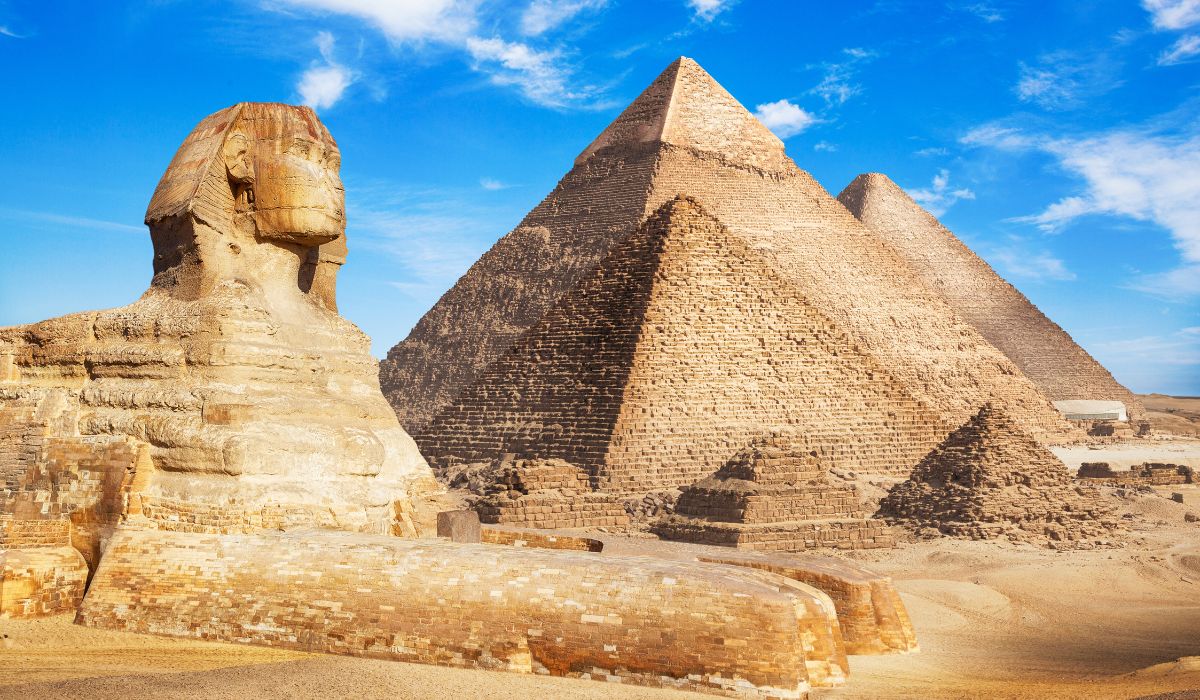
Planning to Travel to Egypt? 15 Essential Things You Must Know Before Booking Your Tickets
Egypt has an undeniable allure as a captivating travel destination. From the majestic pyramids of Giza to the tranquil waters of the Nile River, this country offers a mesmerizing blend of history, culture, and natural beauty. However, before you embark on your Egyptian adventure, thorough pre-trip preparation is essential for a smooth journey. In this article, we will explore 10 crucial things you must know before booking your tickets to Egypt.

Understanding Egypt: An Overview
Geographical Highlights and Diverse Landscapes
Egypt is located in Northeast Africa and is bordered by the Mediterranean Sea to the north and the Red Sea to the east. The country boasts a diverse range of landscapes, including deserts, fertile valleys, and coastal regions.
Historical Significance and Cultural Heritage
Egypt is steeped in history, with ancient civilizations leaving their mark on the land. From the Pharaohs to the Greeks, Romans, and Arabs, Egypt’s cultural heritage is a captivating tapestry of influences that can be seen in its architecture, art, and traditions.
Iconic Landmarks and Must-Visit Attractions
No trip to Egypt would be complete without exploring its iconic landmarks. The Pyramids of Giza, the Great Sphinx, the Valley of the Kings, and the Temples of Luxor and Karnak are just a few of the must-visit attractions that showcase Egypt’s historical grandeur.
1.Visa and Travel Documents
Visa Requirements for Different Nationalities
Before traveling to Egypt, it is important to check the visa requirements for your nationality. Some countries are eligible for visa-free entry, while others may require a tourist visa obtained in advance or upon arrival.
Applying for a Tourist Visa and Necessary Documents
If a tourist visa is required, you will need to gather the necessary documents, such as a valid passport, passport-sized photographs, and a completed visa application form. It is advisable to apply for the visa well in advance to avoid any last-minute complications.
Duration of Stay and Visa Extensions
Typically, tourist visas allow for a stay of up to 30 days in Egypt. If you wish to extend your stay, it is important to inquire about the process and requirements for visa extensions.
2. Health and Safety Precautions
Vaccinations and Medical Preparations Before Traveling
Prior to your trip, consult with your healthcare provider or a travel clinic to ensure you are up-to-date on routine vaccinations and inquire about any additional vaccines recommended for travel to Egypt, such as those for hepatitis A and typhoid.
Common Health Risks and Preventive Measures
Egypt’s climate and environment may present certain health risks. It is important to take precautions such as drinking bottled water, practicing good hygiene, and protecting yourself from mosquito bites to minimize the risk of illnesses.
Safety Tips and Emergency Contact Information
While Egypt is generally a safe country for tourists, it is always wise to exercise caution. Be aware of your surroundings, avoid isolated areas, and follow the advice of local authorities. Keep emergency contact numbers handy and register with your embassy or consulate upon arrival.
3. Best Time to Visit Egypt
Climate Overview and Seasonal Variations
Egypt experiences a desert climate, characterized by hot summers and mild winters. The coastal regions enjoy a more moderate climate. It is essential to consider the weather conditions when planning your trip.
Peak Tourist Seasons and Off-Peak Periods
The peak tourist seasons in Egypt are during the cooler months from November to February, and around major holidays such as Christmas and Easter. If you prefer to avoid crowds and higher prices, consider visiting during the shoulder seasons.
Weather Considerations for Specific Activities
The weather in Egypt can greatly impact the enjoyment of specific activities. For example, diving enthusiasts may prefer to visit the Red Sea during the summer months when the waters are warmer and visibility is clearer. On the other hand, exploring ancient sites and temples may be more comfortable during the cooler months to avoid the scorching heat.
4. Cultural Etiquette and Respectful Behavior
Egypt has a rich cultural heritage and observing local customs and traditions is essential. Dress modestly, especially when visiting religious sites, and be respectful of local customs and social norms. It is customary to remove your shoes before entering mosques and to seek permission before photographing people.
5. Language and Communication
While Arabic is the official language in Egypt, English is widely spoken in tourist areas, hotels, and major cities. However, learning a few basic Arabic phrases can go a long way in enhancing your interactions with locals and showing appreciation for their culture.
6. Accommodation Options
Types of Accommodations Available:
In Egypt, you’ll find a wide range of accommodation options to suit different preferences and budgets. These include hotels, resorts, guesthouses, hostels, and even traditional Egyptian-style accommodations like riads and dahabiyas (Nile cruise boats). Choose the type of accommodation that best suits your needs and desired level of comfort.
Popular Areas and Recommendations for Lodging:
Egypt offers various popular areas for lodging. In Cairo, areas like Zamalek and Downtown are convenient for exploring the city’s attractions. Luxor and Aswan are ideal for those interested in ancient Egyptian sites. For beach lovers, consider resorts in Hurghada or Sharm El Sheikh along the Red Sea coast. Additionally, Dahab and Marsa Alam offer a more laid-back beach experience. Research each area and read reviews to find accommodations that align with your preferences.
Booking Tips and Resources for Finding the Right Accommodation:
When booking accommodations in Egypt, consider factors such as location, amenities, and guest reviews. Online travel agencies like Booking.com, Expedia, and Airbnb offer a wide selection of options. Read reviews from previous guests to get an idea of the quality and service provided. Additionally, consider reaching out to local travel agencies or using reputable tour operators who can assist in finding suitable accommodations based on your preferences.
7.Transportation in Egypt
Air Travel Options and Major Airports:
Egypt has several major airports, including Cairo International Airport, Hurghada International Airport, and Sharm El Sheikh International Airport. These airports serve as gateways to different regions of Egypt and offer domestic and international flight options.
Public Transportation:
Egypt has a well-connected public transportation system. Trains are a popular mode of travel, especially for longer distances between major cities. Buses are another option, with various companies operating routes throughout the country. Taxis are readily available in cities, and ride-hailing services like Uber and Careem are also present in major urban areas.
Hiring a Private Driver or Car Rental Services:
For more flexibility and convenience, you can hire a private driver or opt for car rental services. This allows you to explore Egypt at your own pace and visit off-the-beaten-path destinations. However, keep in mind that driving in Egypt can be challenging due to traffic conditions and local driving habits. Ensure you have an international driving permit and familiarize yourself with local traffic rules before considering this option.
8.Currency and Money Matters
Egyptian Currency:
The official currency of Egypt is the Egyptian Pound (EGP). It’s advisable to carry some local currency for small purchases and transactions.
Exchange Rates and Currency Exchange Options:
Exchange rates can fluctuate, so it’s recommended to check the rates before your trip. Currency exchange services are available at airports, banks, and authorized exchange offices. Be cautious of unofficial exchange services and ensure you receive proper receipts for your transactions.
Availability of ATMs and Credit Card Usage:
ATMs are widely available in Egypt, especially in urban areas and tourist destinations. Credit cards are generally accepted in hotels, upscale restaurants, and larger establishments. However, it’s advisable to carry some cash for smaller vendors and markets that may not accept cards.
9. Local Customs and Etiquette
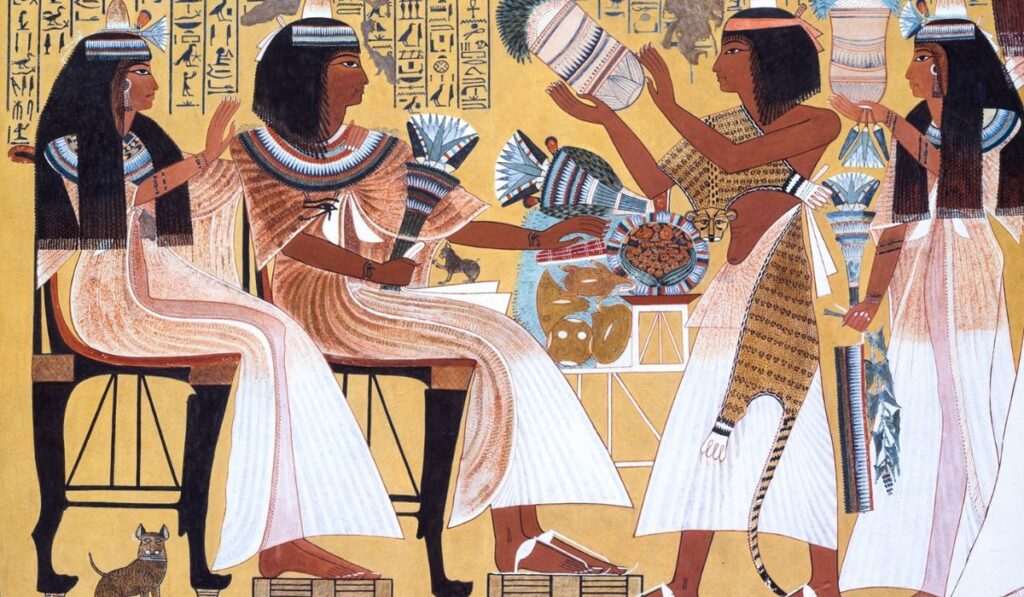
Cultural Norms and Traditions to Be Aware of:
Egyptians are known for their warmth and hospitality. It’s important to respect local customs and traditions. Dress modestly, particularly when visiting religious sites, and avoid public displays of affection. Respecting Islamic traditions, such as fasting during Ramadan, is also appreciated.
Appropriate Dress Code and Behavior in Public Places:
It is advisable to dress modestly in Egypt, particularly in more conservative areas. Women should cover their shoulders and knees, and men should avoid wearing sleeveless shirts or shorts above the knee. When entering mosques, both men and women should cover their shoulders and legs. It is also customary to remove your shoes before entering mosques and some homes.
Greetings and Basic Arabic Phrases to Enhance Interactions:
Learning a few basic Arabic phrases can go a long way in showing respect and enhancing interactions with locals. Common greetings like “Salaam alaikum” (peace be upon you) and “Shukran” (thank you) are appreciated. Additionally, phrases such as “La’afwan” (you’re welcome) and “Maa ismuka?” (What is your name?) can help initiate conversations and create a friendly atmosphere.
10. Must-Visit Attractions in Egypt
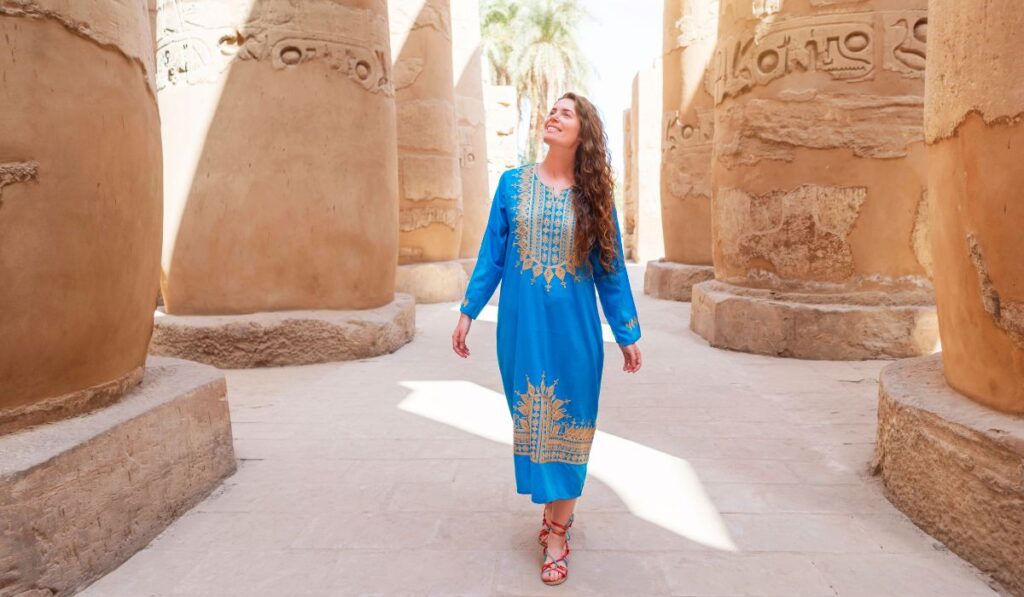
Pyramids of Giza and the Sphinx:
Located on the outskirts of Cairo, the Pyramids of Giza are a must-see attraction. Marvel at the Great Pyramid of Khufu, explore the ancient tombs, and gaze upon the enigmatic Sphinx.
Luxor and the Valley of the Kings:
Visit Luxor to explore the Valley of the Kings, where pharaohs were buried, and witness the grandeur of Karnak and Luxor Temples.
Cairo’s Egyptian Museum and Islamic Cairo:
Immerse yourself in ancient Egyptian history at the Egyptian Museum in Cairo, which houses an impressive collection of artifacts. Explore the historic mosques, palaces, and bazaars in Islamic Cairo, including the iconic Al-Azhar Mosque and Khan El Khalili Market.
Cruising the Nile River and Visiting Aswan:
Embark on a Nile River cruise and witness the stunning temples and ancient ruins along the riverbanks. Visit Aswan to see the majestic Abu Simbel temples and enjoy the serene beauty of Lake Nasser.
Exploring the Red Sea Riviera and Its Pristine Beaches:
For beach lovers and diving enthusiasts, the Red Sea Riviera offers crystal-clear waters, vibrant coral reefs, and stunning marine life. Hurghada, Sharm El Sheikh, and Dahab are popular destinations for relaxation and underwater adventures.
11. Exploring Egyptian Cuisine
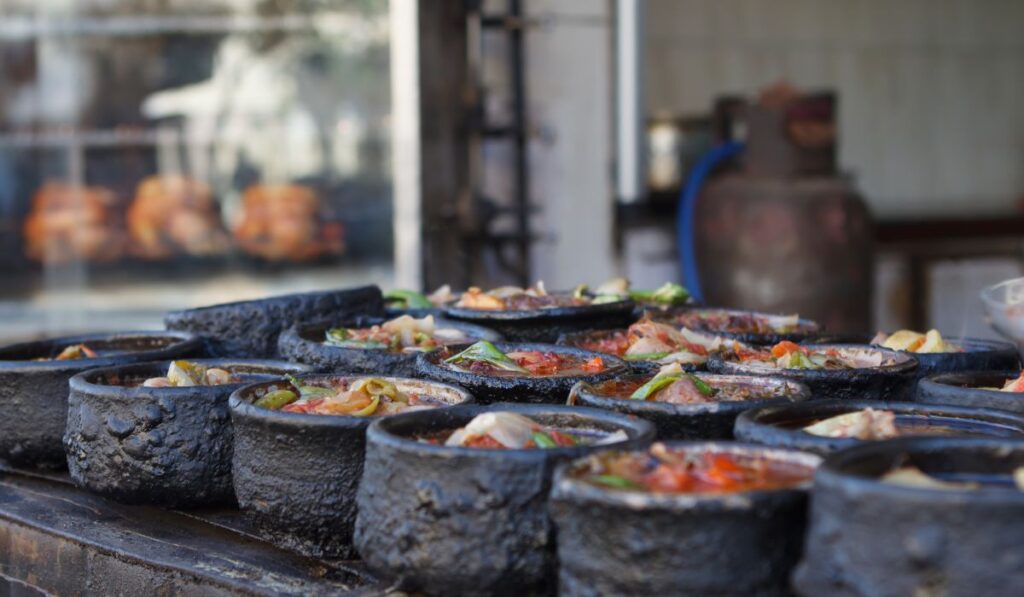
Popular Dishes and Local Flavors to Try:
Indulge in the diverse flavors of Egyptian cuisine. Try traditional dishes such as Koshari (a mix of rice, pasta, lentils, and spices), Ful Medames (stewed fava beans), and delicious street food like Ta’meya (Egyptian falafel) and Kofta (grilled meat skewers).
Street Food Delights and Hidden Culinary Gems:
Explore local street food markets, such as Khan El Khalili in Cairo, where you can savor delicacies like Hawawshi (stuffed pita bread), Kushari, and Sobia (a refreshing coconut-based drink). Additionally, seek out hidden culinary gems recommended by locals for an authentic dining experience.
Dietary Considerations and Food Safety Tips:
If you have dietary restrictions or allergies, it’s important to communicate your needs to restaurant staff. Be cautious when consuming street food and opt for freshly prepared dishes. Stick to bottled water and avoid consuming tap water to prevent any stomach discomfort.
12. Shopping in Egypt
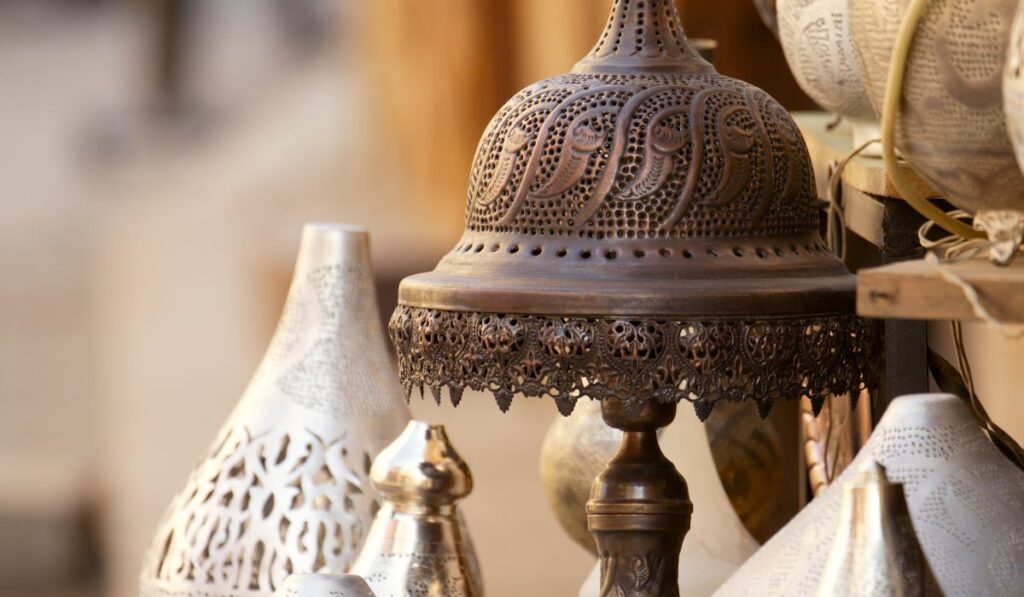
Souvenirs and Traditional Handicrafts:
Egypt is known for its unique handicrafts and souvenirs. Look for exquisite Egyptian cotton products, papyrus artwork, traditional jewelry, spices, and aromatic oils. Bargaining is common in local markets, so be prepared to negotiate prices.
Exploring Local Markets and Bazaars:
Immerse yourself in the vibrant atmosphere of local markets and bazaars, such as Khan El Khalili in Cairo or Souq in Luxor. These bustling markets offer a wide array of goods, including textiles, spices, leather goods, and traditional crafts. Take your time to wander through the narrow alleys and engage with local vendors.
Bargaining Techniques and Tips for Fair Prices:
Bargaining is a common practice in Egyptian markets. Start by offering a lower price than the initial asking price and be prepared for counteroffers. Maintain a friendly and respectful attitude during the negotiation process. Remember, the goal is to reach a mutually agreed-upon price that both you and the vendor are satisfied with.
13. Communication and Internet Access
Mobile Network Coverage and SIM Card Options:
Egypt has extensive mobile network coverage, and you can easily purchase a local SIM card upon arrival at the airport or from mobile network providers. This allows you to have access to data services and make local calls during your stay.
Internet Availability and Wi-Fi Hotspots:
Wi-Fi is readily available in hotels, cafes, and restaurants in major tourist areas. However, connectivity and speeds may vary. It’s advisable to have a backup plan, such as a local SIM card, for reliable internet access when needed.
Language Considerations and Useful Translation Apps:
While Arabic is the official language, English is widely spoken in tourist areas. However, learning a few basic Arabic phrases can be helpful. If you need assistance with translations, translation apps like Google Translate can come in handy for communication and understanding.
14. Cultural Events and Festivals
Major Festivals and Celebrations in Egypt:
Egypt celebrates various cultural and religious festivals throughout the year. The most significant include Eid al-Fitr (marking the end of Ramadan), Coptic Christmas, and Sham El-Nessim (a spring festival celebrated by Egyptians of all faiths).
Traditional Music, Dance, and Cultural Events:
Experience the vibrant Egyptian culture through traditional music and dance performances. Attend events featuring folkloric music, belly dancing, or the mesmerizing whirling dervishes.
Participatory Experiences for an Immersive Cultural Journey:
Engage in hands-on activities to immerse yourself in Egyptian culture. Take part in a cooking class to learn how to prepare traditional dishes, or join a workshop to learn traditional crafts like pottery or calligraphy.
15. Safety Precautions for Travelers
Staying Informed about the Current Security Situation:
Prior to your trip, it’s important to stay informed about the current security situation in Egypt. Check travel advisories and consult with local authorities or your embassy for any updates or specific safety precautions.
Precautions Against Petty Theft and Scams:
Like in any tourist destination, it’s advisable to take precautions against petty theft and scams. Keep an eye on your belongings, especially in crowded areas, and be cautious of unsolicited offers or approaches from strangers.
Respectful Behavior in Religious and Sensitive Areas:
When visiting religious sites, mosques, or sensitive areas, demonstrate respect by adhering to any guidelines or restrictions in place. Dress modestly, follow instructions from authorities, and avoid any behavior that may be considered disrespectful or offensive.
By considering these essential factors before your trip to Egypt, you can ensure a smooth and enriching experience. From choosing the right accommodation to understanding local customs, exploring iconic attractions, indulging in delicious cuisine, and shopping for unique souvenirs, Egypt offers a captivating journey filled with history, culture, and natural beauty. Enjoy your adventure in this remarkable country!

